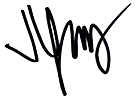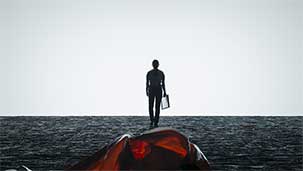Dear Fellow Critics,
Warning: spoilers ahead.
A hundred years from now, will 2016 be remembered as the sociopolitical inflection point that it right now seems to be? Certainly the spate of horrific crimes, societal regressions, humanitarian crises, and celebrity deaths has justified many claims that it was the worst year ever. Such broad statements, however, discount all the great stuff that was produced throughout those twelve months: culturally significant pop albums like Beyonce’s “Lemonade”; ground-breaking films like Barry Jenkins’s Moonlight; pioneering novels like Katharena Vermette’s The Break. Indeed, there was much great art created in 2016. Enough to balance out all the disheartening atavism? Perhaps that’s a question best leftto historians.
My favourite film of the year was the one that, in the midst of what seemed like the global collapse of common sense and dignity, affected me most deeply on a personal level. Which makes sense, I think. When the wider world becomes impossible to comprehend, one turns inwards. And my experience with this particular film was very intimate, very internal. In the hours after I left the theater I felt possessed – much like the film’s main character – of a radical new way of understanding the world. The people I observed in the aisles of the grocery store appeared more substantial to me; the empathy I felt for them as they browsed granola and orange juice and reprimanded their dawdling children was hugely amplified; the anxieties of my life seemed abstracted, shrunk down, drained of their power to oppress me.
Yes, it’s true—this was what I experienced after watching an alien invasion movie filled with giant spaceships and roaring jet fighters and trigger-happy generals and, as it always seems to be these days (in movie as in life), the fate of the world hanging in the balance.
Arrival is, first and foremost, a film of ideas. Some might find it cold, and I don’t blame them for being put off by the purposeful complexity of the story. The movie is a cryptogram, just like the weird alien ink-squiggles that the protagonist, linguist Louise Banks (played by Amy Adams), is tasked to translate. But however esoteric the narrative might be, the Big Idea that reveals itself at the end of the film has haunted me ever since. I think about it almost every day.
That Big Idea is best expressed by summarizing the dilemma faced by Louise when she finally learns the truth about the byzantine alien language: would you know unimaginable pain in order to know unimaginable joy?
Of course this simple summary gets the chronology of the story wrong, but that’s in keeping with the film’s tricky treatment of passing time (which is not simply a storytelling conceit, but a brilliant expression of that core philosophical question itself). Here’s how it works within the narrative construct of the film: Louise knows joy, first; she has a daughter whom she loves, who, we learn in the very first minute of the film, dies of an untreatable disease at the age of ten. What we don’t know until later is that these are not flashbacks; this birth and death have yet to occur. And so, at the end of the film, she must choose whether or not to conceive this doomed child; whether to experience that decade of joy, knowing fully what awaits her at the end of it. All of the alien encounter stuff is merely prelude to the real beginning of Louise’s story. See the film a second time and you’ll be shocked to realize that she pretty much states this explicitly in her very first line of voice-over dialogue: “I’m not sure I believe in beginning and endings…”
This misdirection might not seem terribly sophisticated; in truth, it’s a total contrivance. But the way that contrivance is revealed – in subtle, sublime iterations – is masterful. Even the opening shot of the film offers clues: at the edge of the frame, the wine glass sitting on the table tells you everything you need to know about how everything will end (or begin). There is no close-up, no insert. You could watch the film a hundred times and miss that wine glass ninety-nine of them—but when you do see it there is an inevitability to the realization that comes remarkably close to simulating the experience of understanding the aliens’ circuitous, temporally-complex language.
Tricking an audience is simple; implicating them in their own delusion requires the touch of a master filmmaker. And since director Denis Villeneuve has now topped my list two years in a row, I suppose I can comfortably say that I consider him a master.
There is so much more to Arrival than the big plot twist, though: Johan Johansson’s moody, methodical score; the functionally brutalist production design by Patrice Vermette; the exacting, engrossing performances from the entire cast (even Forest Whitaker and his Afrikaner-by-way-of-Southie accent); Bradford Young’s cinematography, which is stark and epic as military choppers approach the ovoid monoliths, then soft and gauzy in moments of domestic parental bliss, feels like some divine commixture of David Lean and Terrence Malick.
Yes, all this top-notch craft makes for a good night out at the movies. But what turned that good time into a moment of spiritual ecstasy for me wasn’t the craft, or the political message, or the mirrors and false floors and trapdoors of the plot. It was, instead, those most basic elements of filmic language, which, together, made that central theological question – the impossible sameness of joy and anguish – real to me.
It was the images and the sounds.
Simple images that evoked whole oceans of feeling: a newborn baby’s tiny fingers; a child running through tall grass; a little girl laying in bed with her father, reading a story. All set to a simple piece of music by composer Max Richter that is the very definition of bittersweet: looping, elegiac, unrelenting strings that seem the sonic manifestation of all the sorrow and happiness Louise feels throughout the film. The merging of those two elements devastated and elated me. They spoke to my greatest hopes and greatest fears. It made the film seem like it was made just for me, like it was released into theater just so that I would see it and finally come to understand how treacherous the world is and how blessed I am to know such happiness in the midst of it.
My God, how unexpected to be filled with such spiritual sentiment after seeing a big-budget sci-fi flick! Or maybe not. Maybe I should have expected it. The scientific premise of the film is that language has the capacity to rewire your brain, and therefore to alter your perception of reality. Louise, after working for months to decipher the alien glyphs, now sees cause and effect as the enlightened extraterrestrials do: not as sequential, linear moments, but as part of a whole; Time as an overlapping, perpetual, redundant variable. One imagines that she might find herself in a grocery store, like I did after leaving the theater, and be able to observe the people around her not just in that one moment, in that one place, but, simultaneously, as every iteration of themselves that they have been and will be: a baby, a child, a teenager, an adult, a parent, a grandparent. And to consider, too, every single ordeal and adventure and moment of bliss and heartbreak each of those versions has experienced. She would thereby know them more deeply than I ever could; more deeply than they know themselves.
We have been trained, over decades, to expect certain things from films like this. To have one’s expectations recalibrated the way that Arrival recalibrated mine is a special occurrence. And for that reason is it, undoubtedly, the best (and most profoundest) movie of the year.
Sincerely,

Jared




